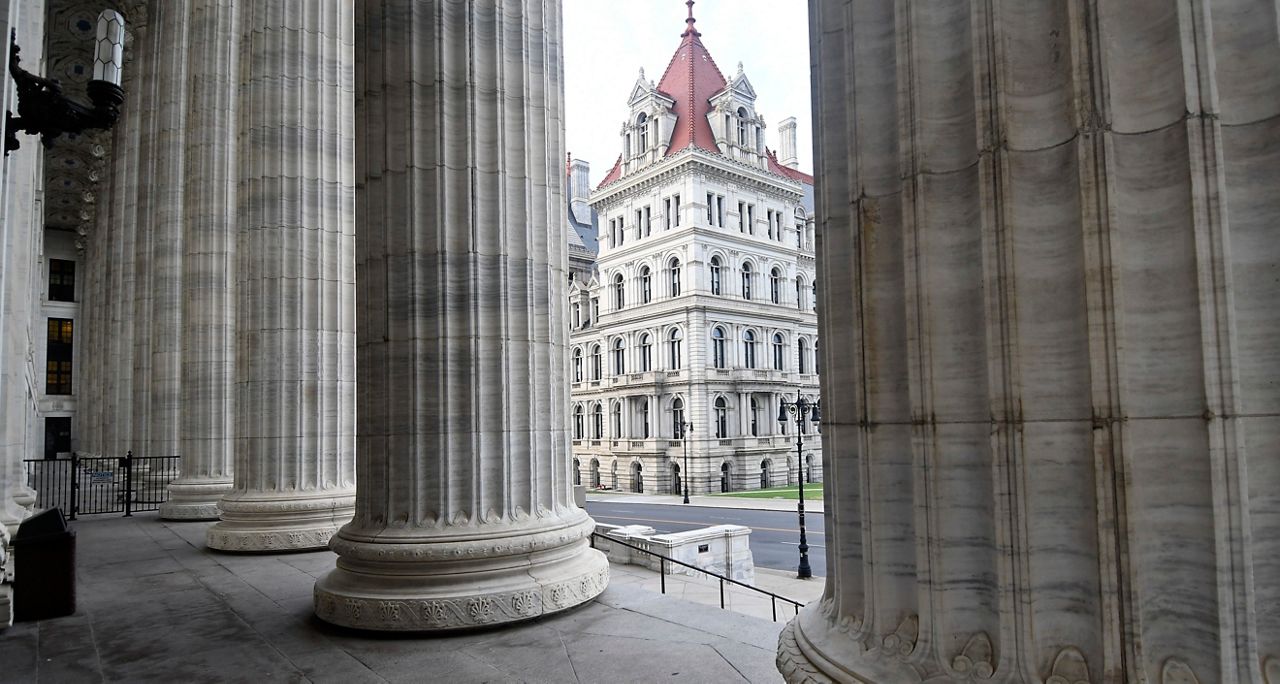How will the problems of 2020 be resolved in 2021? That's the central issue facing Gov. Andrew Cuomo and the new session of the state legislature, which officially begins on Wednesday in Albany.
It is, once again, going to look very different: Lawmakers will be in many cases appearing via video conference to cast votes remotely. The governor will continue to hold press briefings to update New Yorkers on the ongoing COVID-19 pandemic. In many ways, it hardly feel like much has changed as the pandemic continues to spread across the state and the country even as a vaccine is being rolled out.
But there are also major changes in Albany on the horizon. The 2021-22 state legislature has its largest class of freshmen since the aftermath of the Watergate scandal. Democrats now control both chambers with a supermajority. A new presidential administration will bring a different dynamic to Albany.
Here are three things to watch for in 2021 at the New York state Capitol:
1. The Biden administration.
New York needs money, and its governor is pinning his hopes on the new president to make that a reality. Cuomo is seeking billions of dollars in direct aid from the federal government to close a budget gap blown wide open by the COVID-19 pandemic and the resulting economic crisis.
Cuomo hopes President-elect Joe Biden will be able to deliver on that aid package through the intangibles of experience, personal relationships with Republicans in Congress, and political capital. It's not clear that this can work.
State and local aid has been staunchly opposed by Republicans in the U.S. Senate, even as Biden as signaled he wants to move forward with a larger stimulus measure than the $900 billion package that was approved in December.
A Biden administration at the outset is nevertheless expected to be more friendly to New York. Cuomo has deep ties to Biden, having backed his bid for the Democratic nomination early on.
But Trump and his administration's policies will no longer be the convenient punching bag for Democrats in New York -- setting up a wholly different dynamic with the White House for the next four years.
2. The new legislature.
One of the biggest knocks on the state Assembly and state Senate is the stagnation of the institutions. These are deliberative bodies that do not do much deliberation. They have little turnover, especially among its leadership. They are top-down institutions. The last decade should change that perception.
The preceeding decade has changed the legislature. Both chambers are now led by Democrats who have elected Black leaders. And new members are demanding a bigger role in how legislation is shaped.
Even before the new session began, lawmakers returned to pass a series of pandemic-related residential tenant protection measures that surpassed what Cuomo had put in place.
Increasingly younger people are winning primaries against longtime incumbents. Some are bringing a brand of progressive politics more in line with Rep. Alexandria Ocasio-Cortez.
What does this mean for the state budget? The expectation is taxes for upper income New Yorkers will be raised this year to help fill the budget gap by the end of March. The question is where lawmakers will start the tax hike, with income levels ranging from $500,000 to $2 million as the floor.
At the outset, this seems simple enough. But it could also create a new level of tension between Democrats who represent suburban communities where earning six figures does not "feel" rich and progressives who are seeking higher rates across a broader range of incomes.
Democrats in both chambers now have a supermajority with enough votes to override a veto. An override is rare and unlikely. But it gives lawmakers leverage.
How these new lawmakers and emboldened progressives seek to challenge the status quo in Albany and the state's powerful governor remains to be seen.
3. Moving forward.
Cuomo insists he does not want another closure of the economy, where businesses closed, people stayed home and in many instances lost their jobs and the exchange of money funding state and local governments ground to a halt.
The first test is a Buffalo Bills playoff game.
The governor has hinted at plans in his State of the State address to detail what the next years will feature as New York will allow a limited number of fans inside Bills Stadium following the results of a rapid COVID-19 test. What does this mean for reopening Broadway? Keeping restaurants open? Or allowing for more visits at nursing homes?
On a parallel track is the rollout of the COVID-19 vaccine, which may take up to a full year to finally show any fruit and produce a level of immunity in the population that brings back some semblance of normal.
Unemployment still remains higher than it was a year ago. The physical and mental health effects of the pandemic could be long lasting. And New York saw a decline in its population, part of a decades-long trend that Cuomo attributed to the pandemic.
Cuomo last week called 2021 a potentially "transformational" year. It's also a year of the unknown.


